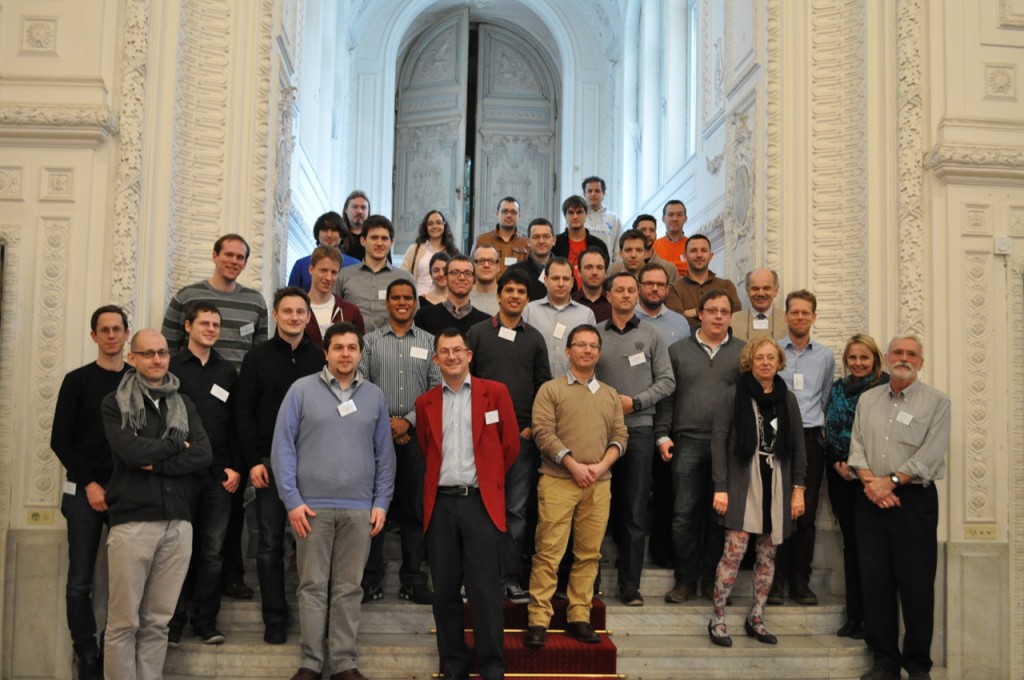The workshop is now over. Plenty of information can still be found:
Next year, VaMoS’2015 will be located in Hildesheim (Germany). The general chair will be Klaus Schmid (University of Hildesheim), program chairs will be Øystein Haugen (SINTEF, University of Oslo, NO) and Johannes Müller (Bosch SI, DE). See you in Hildesheim!
Mission
Variability management is a major challenge in the development, maintenance, and evolution of software-intensive systems. VaMoS 2014 focuses broadly on innovative work in the area of variability modelling and management. We particularly invite contributions with a strong variability modelling aspect, but also addressing the wider area of variability management, e.g., requirements, architecture, analysis, implementation, and evolution.
The VaMoS workshop series aims at bringing together researchers and practitioners from different areas dedicated to mastering variability to discuss advantages, drawbacks, and
complementarities of various approaches and to present new results for mastering variability throughout the whole lifecycle of systems, system families, and product lines.
The workshop will feature invited keynotes as well as peer-reviewed paper presentations. The workshop is completely open (one need to register first…), you will not have to be an author or a discussant to attend.
The authors of best papers accepted for VaMoS’14 will be invited to submit full versions to a special section of the Springer’s SoSyM journal devoted to this edition of the workshop (subject to a separate review process)
Topics (non-exclusive)
- Variability across the software life cycle
- Separation of concerns and modularity
- Variability evolution
- Variability mining and reverse-engineering
- Feature, aspect, and service orientation
- Software configuration management and version control
- Architecture and design approaches for variability
- Software economic aspects of variability
- Visualization and management of variability
- Adaptivity at runtime and development time
- Reasoning about variability
- Analysis of models and artifacts with variability
- Programming languages and tool support
- Case studies, empirical studies and experience reports
